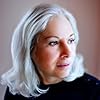Susan Pashman
This book began during a single week with two disturbing conversations. The first, over a Thanksgiving dinner, was with a cousin who exclaimed gleefully that four “disadvantaged” black children had just been admitted to his son’s class for gifted children; he was delighted that his son would be “enriched” by getting to know kids who were not like himself.
I, alone, was irritated by this news. How, I wondered, would this cousin feel if his son were chosen to be one of four white children in an all-black school, participating in a program to provide black children with an opportunity to get to know kids who were not like them?
Several days later, I had a chance to find out. Over pizza with an old friend, I learned that she had decided to enroll her child in a local public school where he would be one of very few white students. He would be in a “special enrichment” class, she said, and so she was certain his education would not be compromised. She was very proud to be doing what she could to advance the liberal social agenda she and her husband had fought for as student radicals.
“But you are using your own child to advance your politics,” I cried.
“I have to do what I can,” was her rejoinder.
I lay awake that night wondering about these two very well-intentioned parents. Well into the wee hours, I thought about what could go wrong. Mostly, what I came up with had nothing to do with the children involved; children were, as their parents assumed, blank slates who could become the colorblind people their parents were hoping for. But the adults who were their parents: Could they be counted on to abandon old resentments and distrust? If some small crisis developed, would the parents be as advanced in their thinking and actions as they hoped their children would be?
The next morning, I began this novel.
I was beaming with joy as I watched Barack Obama stride out onto that platform in Chicago on the glorious night when he proclaimed victory in his first presidential election. But, tempering my pleasure, was the thought that the election of America’s first black president probably spelled doom for the book. I’d begun writing. Racial tensions would soon be resolved; the era of racial strife was about to end.
I am not happy to discover that what I had suspected all along has, indeed, come to pass, and that we are no closer now to a colorblind society than we were when I started this novel. We have raised our children, as the novel’s narrator says, “in a whole new way,” but the grown-ups have simply not caught up with the ideals they so hopefully taught to their children.
There is so much left to do. Actually, we are only just getting started.
I, alone, was irritated by this news. How, I wondered, would this cousin feel if his son were chosen to be one of four white children in an all-black school, participating in a program to provide black children with an opportunity to get to know kids who were not like them?
Several days later, I had a chance to find out. Over pizza with an old friend, I learned that she had decided to enroll her child in a local public school where he would be one of very few white students. He would be in a “special enrichment” class, she said, and so she was certain his education would not be compromised. She was very proud to be doing what she could to advance the liberal social agenda she and her husband had fought for as student radicals.
“But you are using your own child to advance your politics,” I cried.
“I have to do what I can,” was her rejoinder.
I lay awake that night wondering about these two very well-intentioned parents. Well into the wee hours, I thought about what could go wrong. Mostly, what I came up with had nothing to do with the children involved; children were, as their parents assumed, blank slates who could become the colorblind people their parents were hoping for. But the adults who were their parents: Could they be counted on to abandon old resentments and distrust? If some small crisis developed, would the parents be as advanced in their thinking and actions as they hoped their children would be?
The next morning, I began this novel.
I was beaming with joy as I watched Barack Obama stride out onto that platform in Chicago on the glorious night when he proclaimed victory in his first presidential election. But, tempering my pleasure, was the thought that the election of America’s first black president probably spelled doom for the book. I’d begun writing. Racial tensions would soon be resolved; the era of racial strife was about to end.
I am not happy to discover that what I had suspected all along has, indeed, come to pass, and that we are no closer now to a colorblind society than we were when I started this novel. We have raised our children, as the novel’s narrator says, “in a whole new way,” but the grown-ups have simply not caught up with the ideals they so hopefully taught to their children.
There is so much left to do. Actually, we are only just getting started.
More Answered Questions
About Goodreads Q&A
Ask and answer questions about books!
You can pose questions to the Goodreads community with Reader Q&A, or ask your favorite author a question with Ask the Author.
See Featured Authors Answering Questions
Learn more


